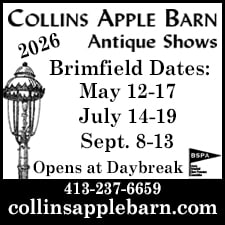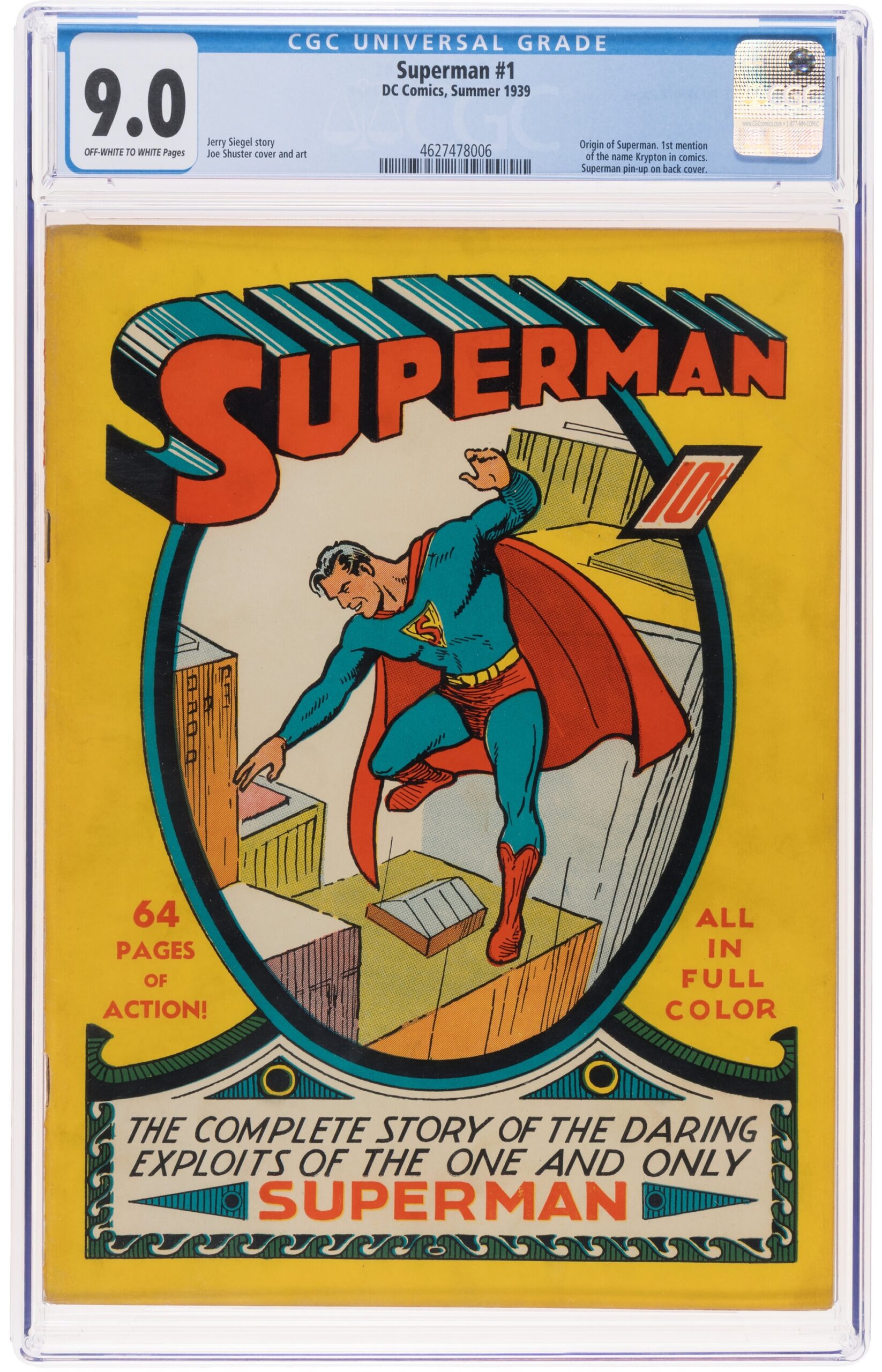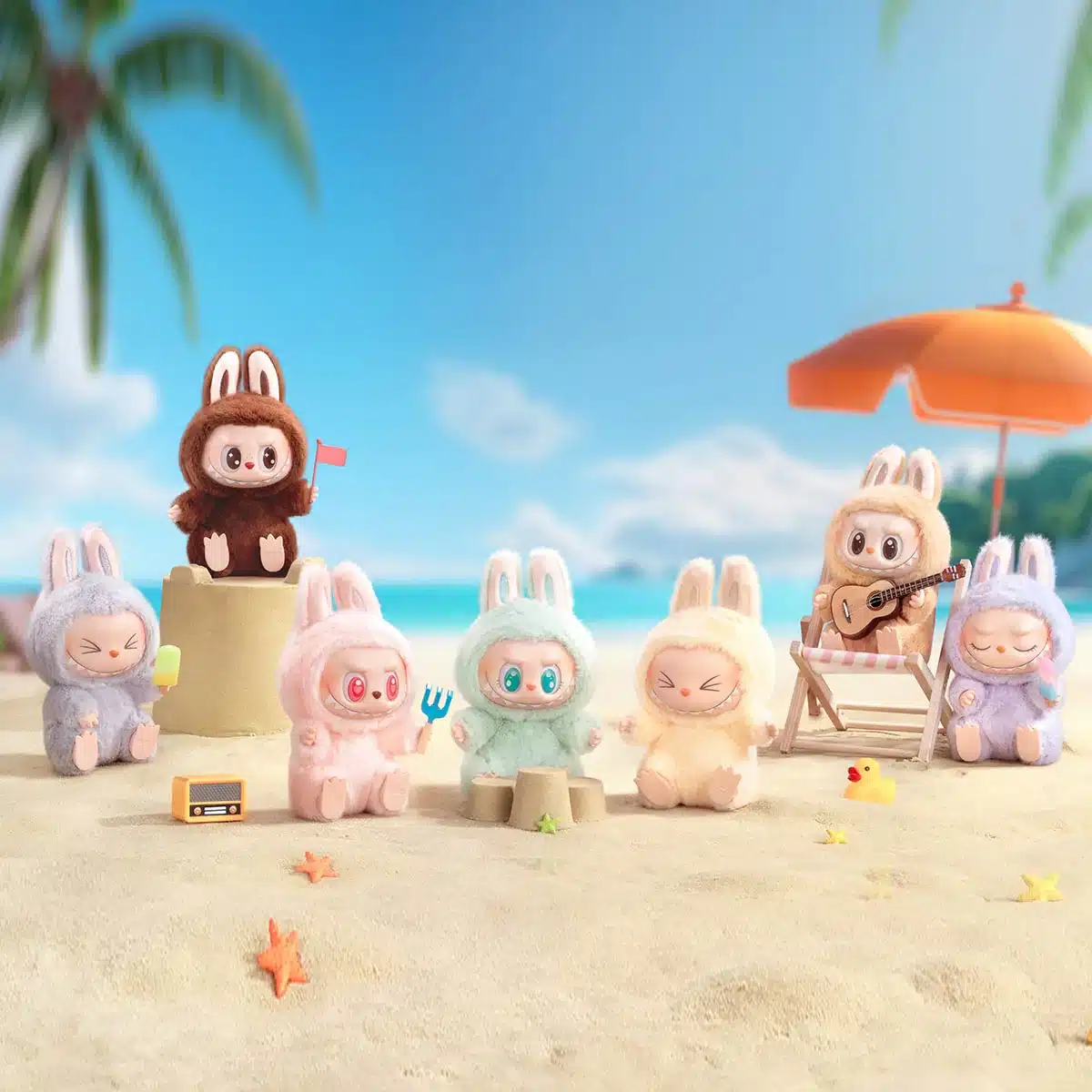The Early Days of Independent Comics: Nexus, Badger, and Whisper
By J.C. Vaughn: President of Gemstone Publishing and Amanda Sheriff: Gemstone’s Editor-Digital. PopCultureSquad.com’s Bob Harrison also contributed to this column.
In the early 1980s, there was an explosion of independent—generally non-Marvel, non-DC—comic book titles. Some of them came and went, while others carved out significant chapters in the history of the medium.
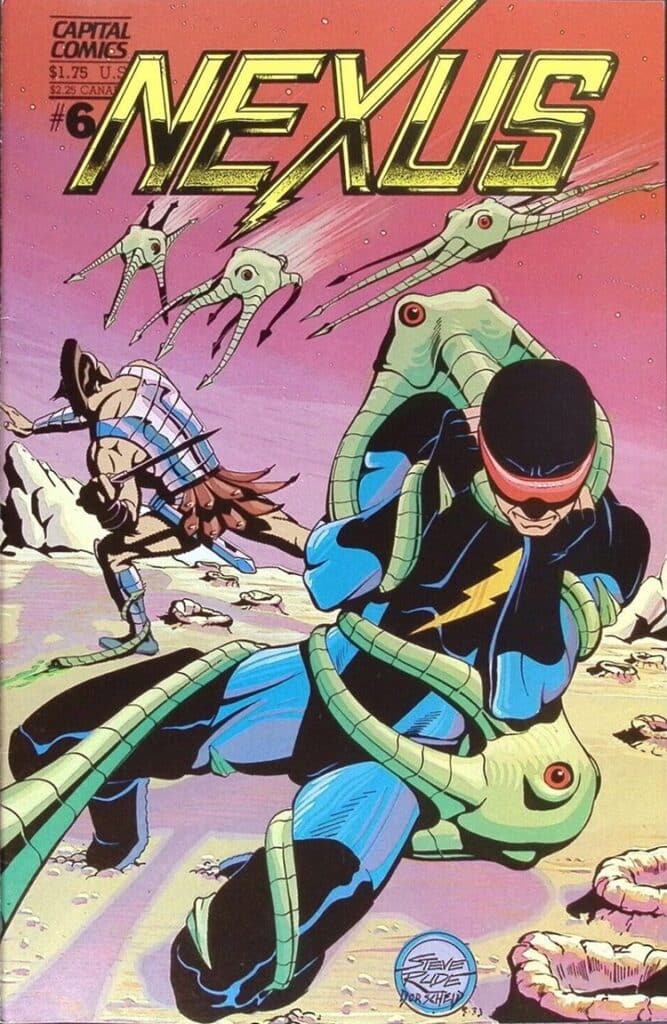
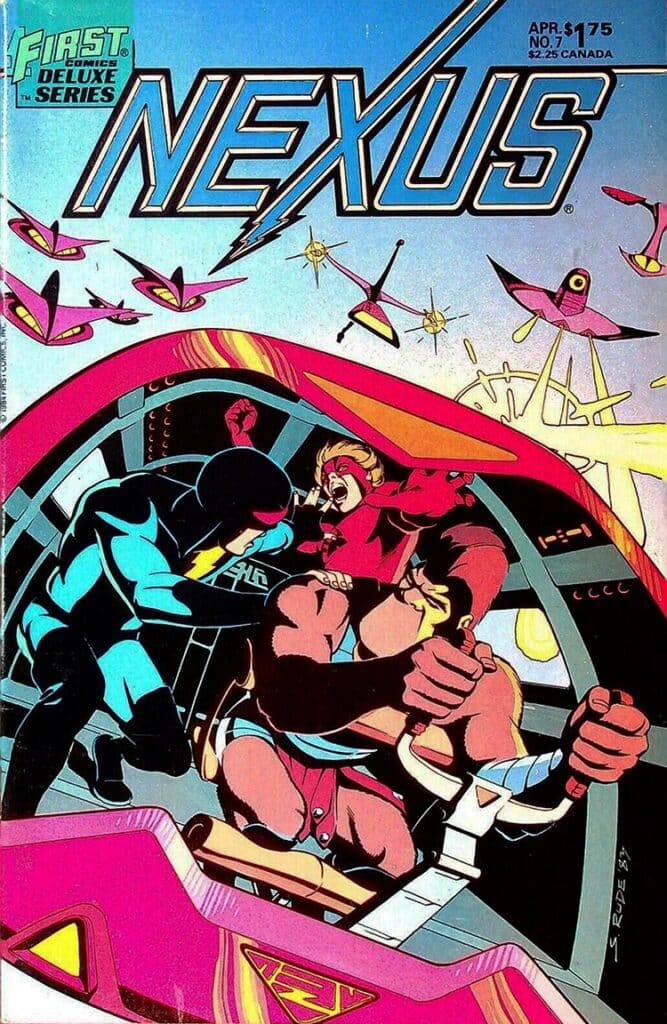
Nexus Vol. 2 #7, the first issue from First Comics.
Photo: OverstreetAccess.com
In 1981, Capital City Distribution, a Wisconsin-based comic book distributor, began publishing comics under the name Capital Comics. Over three years, they published three titles: Nexus (two series totaling nine issues), Badger (four issues), and Whisper (two issues).
Nexus, the first of their titles, was created by writer Mike Baron and penciler Steve Rude in 1981, and was a sci-fi superhero comic set 500 years in the future. Badger, created by Baron with art by Jeffrey Butler, centered on the titular superhero/vigilante who suffered from “multiple personality disorder.” Whisper was written by Steven Grant with art by Rich Larson and told the story of American Ninja Alexis Devlin.
All of the series showed promise, but Capital decided to pull the plug on their publishing venture in 1984.
Almost immediately, other publishers were interested in picking up the titles. One stood out.
“First Comics was located near one of Capital’s satellite distribution locations in Evanston, Illinois, and I heard about the line folding pretty early,” said Mike Gold, the editorial director and co-founder of First Comics, another ’80s start-up.
“These were three of the best comics being published by anybody at that moment in time. Fans liked them, retailers liked them, and we liked them. When we built First Comics, I had a very rigid publishing plan about what types of material we would publish and the order in which we would publish them. It was part of our business plan and part of our financing prospectus; coincidentally, we had just completed these commitments. The Capital books fit in like a glove (this was pre-OJ). I would have been an idiot not to have pursued them,” he said.
When it came time for the final negotiations and purchase, Gold met with Madison and First Comics publisher Rick Obidiah. The meeting was in the offices of Capital City Distribution, which were in a building that faced the Wisconsin Capitol building.
“We were negotiating at Rich’s office in Madison, Wisconsin, a lovely town that had been home to our publisher, Rick Obadiah. The office space overlooked the Wisconsin State Capitol building; this location was critical to the moment. Sitting around the conference table were Capital owners Milton Griepp and John Davis, Rich Bruning, Mike Baron, Rick Obadiah, and me. We worked things out for Nexus and Badger, and Mike was there to represent the creators’ interests, but when it came to Whisper, Milton was reluctant to include that in the deal. I explained why that was important to both First Comics from a promotional point of view and to the Whisper property itself as it would have been orphaned. Milt didn’t agree, and we went back and forth as one often does in such negotiations. As we did, Mike started getting frustrated,” Gold said.
As the conversation and attention in the room focused on the acquisition, Griepp realized that the folks from First Comics were expecting that the purchase would include Whisper.
It seemed as if an impasse had been reached.
“Milt turned to Rich and asked him if my arguments made any sense to him. Rich, bless his heart, said ‘Well, yes, they do.’ Milt held his ground, as did I. I can be stubborn – these days I only do that when I’m on the clock, but back then I regarded it as an art form,” he said.
It was at this point that Baron, who has always been known as someone with strong opinions, began to get frustrated with the bottleneck.
“Mike ran out of patience. He walked over to the window—remember, we were across from the state capital building—and he lifted open that window. He lowered himself out of that window and declared he was going to just hang on by his hands until we reached a deal or until he fell,” he said.
“Milton’s back was to that window, and, without looking, he just shook his head and said, ‘Well, if you feel that way about it…’ and we closed. Mike pulled himself up and back into the office; yes, he was that strong. Rick looked at me in confusion as if to say, ‘Ummm, what the hell are we doing here?’” Gold said.
“But we all had our deal. John and Milton went on to take us on a tour of their distribution catacombs, and I’m sure lunch was involved, as I fondly recall having a long discussion about music with John. Rick and I drove back to Evanston, Mike went back to his house (a great place in the Madison suburbs that seemed to have been designed by The Road Runner), and we got back to making funny books,” he said. “And, evidently, a legend.”
Nexus, Badger, and Whisper – and various spin-offs – enjoyed healthy runs at first. Nexus went on to Dark Horse, and most recently, a significant success in crowdfunding. Badger has had a few incarnations, and Whisper is presently being revived.


